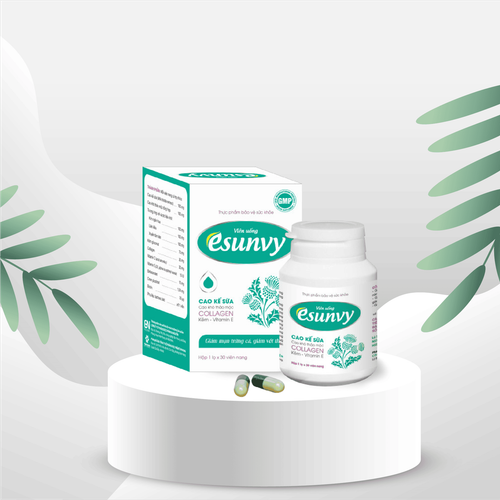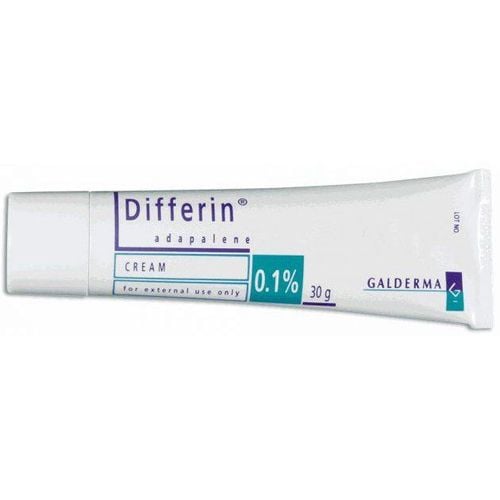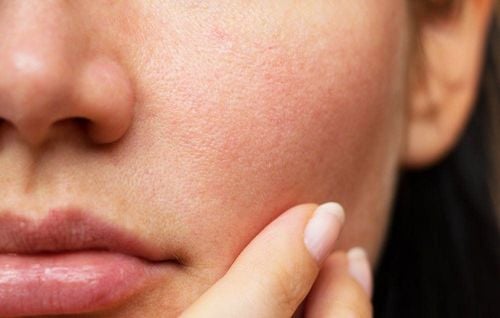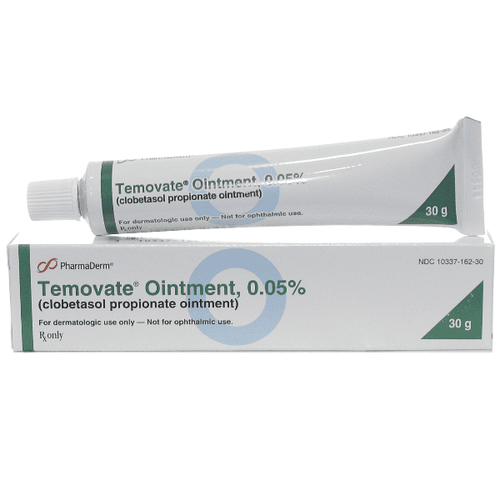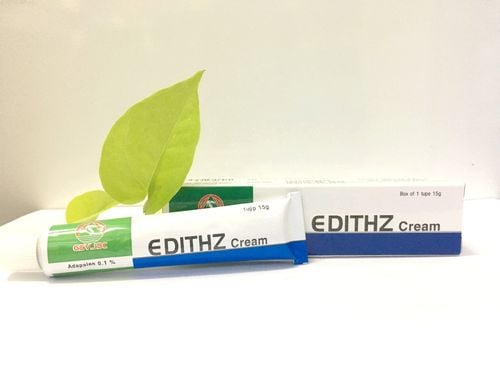This is an automatically translated article.
Oily skin is the result of overproduction of sebum. This is an oily substance that protects and moisturizes the skin. However, overproduction of sebum can clog pores and cause acne. Therefore, taking care of and overcoming oily skin is extremely important.
1. Causes of oily skin
Oily skin is one of the most common skin types, affects both sexes and often gets worse during adolescence.
Due to the excessive oil production often accompanied by enlarged pores, the skin becomes greasy, unsightly. In addition, oily skin is also a factor that leads to the development of acne.
The increase in oil secretion of the sebaceous glands can be due to several reasons such as:
Hormones: Hormonal changes due to any number of reasons including puberty, pregnancy, menopause and the use of birth control pills Both can cause an increase in oil production in the skin. Stress: Under stressful conditions, the body increases the level of cortisol which then stimulates the sebaceous glands to produce more oil. Weather: Weather conditions can greatly affect the amount of oil produced by the sebaceous glands. Hot and humid weather during summer days will stimulate the overproduction of sebum. However, dry weather can also cause oily skin. Diet: Diet does not need to be equal to foods with high glycemic content such as: soda, sugar, refined flour, processed foods leading to insulin resistance. This also increases the oil secretion of the skin. Cleansing the skin: Not cleaning the skin properly and even over-cleaning the skin are among the factors that stimulate oil production more. Genetics: Inheriting a particular gene can lead to more oily skin. Oily skin occurs with an overproduction of sebum and is prominent in the T-zone of the face (forehead, nose, chin). It usually has a number of signs such as: oil on the face makes the face shiny, acne, blackheads due to clogged pores with sebum, enlarged pores, thick and rough skin.

Di truyền có thể là nguyên nhân khiến da dầu
2. Some Home Remedies for Oily Skin Care
2.1. Wash one's face
This may seem obvious, but many people with oily skin should not wash their face multiple times a day. If your skin is oily, you should wash your face twice a day. Also, stay away from harsh soaps or detergents. Instead, use soaps with gentle cleansers like glycerin soap.
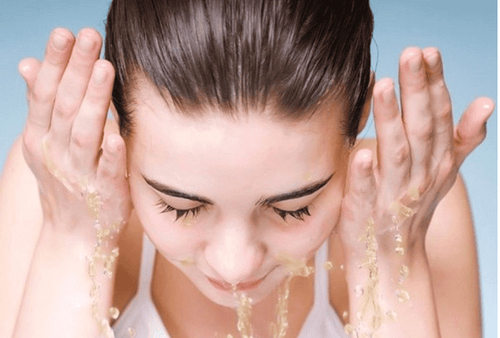
Người da dầu không nên rửa mặt quá 2 lần/ngày
2.2. Oil absorbent paper
Small and thin sheets of oil-absorbing paper will help your sebaceous glands not be overloaded, and they will absorb excess oil on the face to help reduce the shine of the skin.
Oil blotting paper is relatively inexpensive and readily available. Paper is used as needed throughout the day.
2.3. honey
Honey is one of the most favored skin remedies. Thanks to its antibacterial and antiseptic properties, it can be beneficial for oily and acne-prone skin.
Honey is also a natural humectant and oily skin is skin that lacks moisture. Therefore, honey will help keep the skin moist and not greasy.
To use honey in the treatment of acne and oily skin, apply a thin layer of honey to your face, let it dry for about 10 minutes, and then rinse thoroughly with warm water.

Mật ong giúp điều trị da dầu
2.4. Clay
Clay is used to help absorb skin oils and treat skin conditions. French green clay is a popular treatment for oily skin and acne. Because, it is highly absorbent. French green clay is commonly available in powder form.
To make a green clay mask equivalent to the French spa standard, do the following: Add filtered water or rose water to about a teaspoon of clay until a consistent paste is formed. Apply the clay mixture to your face and let it dry on its own. Then, remove the clay with warm water and pat dry.
2.5. Oatmeal
Oatmeal helps soothe inflamed skin and absorb excess oil. In addition, it also helps to exfoliate the skin. When using oats as a face mask, the oatmeal will be crushed and can be combined with yogurt, honey or mashed fruit (such as banana, apple or papaya).
How to use oatmeal as follows:
Combine 1/2 cup of oats with hot water to form a paste. Stir into this mixture 1 tablespoon of honey. Sweep and massage the oatmeal mixture into your face for about three minutes. Rinse with warm water and pat dry. Another use is to apply the oatmeal mixture on your face and let it sit for 10 to 15 minutes. Then, rinse with warm water and pat dry.
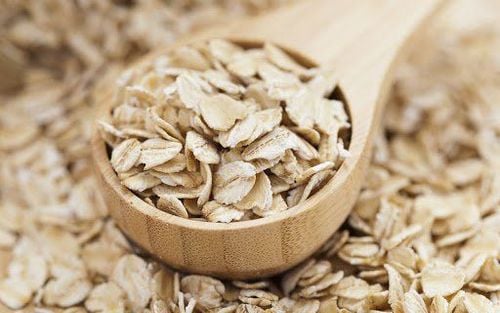
Bột yến mạch giúp tẩy da chết
2.6. Egg white and lemon
Egg white and lemon is a folk remedy applied to oily skin. Both ingredients work to help tighten pores. The acids in lemons help absorb oil. According to some previous studies, lemons have good antibacterial properties. However, this remedy is not the best choice because it can be irritating to people who are allergic to eggs.
How to use egg white and lemon mask:
Combine 1 egg white with 1 teaspoon of freshly squeezed lemon juice and form a homogeneous paste. Sweep and massage this mixture onto your face, and wait until the mask dries. Rinse with warm water and pat dry.
2.7. Almond
Ground almonds not only exfoliate the skin, but it also helps to clean excess oil and impurities on the skin.
How to use almonds:
Almonds are finely ground and then taken enough 3 teaspoons to make the mask mix. Add 2 tablespoons honey and crushed almonds. Sweep and massage the honey-almond mixture to your face gently, in a circular motion. Rinse with warm water and pat dry. Alternatively, you can also make an almond mask by grinding it into a paste before adding honey. Next, sweep this mixture on your face and massage your face so that the nutrients can penetrate deep inside. Leave the mask on your face for about 10 to 15 minutes. Finally, wash your face with warm water and pat dry. In case, you have a nut allergy, you should not use this mixture to care for oily skin.
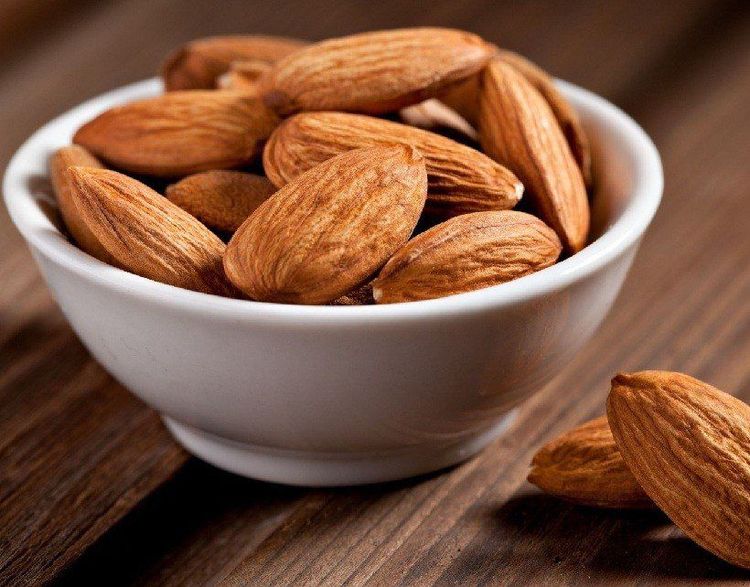
Hạnh nhân xay giúp làm sạch dầu thừa
2.8. Vera
Aloe vera is known for its effects on minor burns and other skin conditions. According to the Mayo Clinic, there is good scientific evidence that aloe vera helps treat flaky skin caused by oily patches of skin. And aloe vera is used by many people to treat oily skin.
How to use aloe vera: you can apply a thin layer of aloe vera on your face before going to bed and leave it on until morning. However, aloe vera is also known to cause allergic reactions on the skin. So if you haven't used aloe vera before, test a small amount on your hands. If you don't see an allergic reaction within 24 to 48 hours, it's probably safe for your skin.
2.9. Tomato
Tomatoes contain natural salicylic acid, which is a popular home remedy for acne. The acids in tomatoes can help absorb excess oil on the skin and unclog pores.
How to use tomato mask for oily skin:
Combine a teaspoon of sugar with the flesh of a tomato to form a mask. Sweep and massage this mixture onto your face gently, in a circular motion. Leave the mask on for 5 minutes. Rinse with warm water and pat dry. Alternatively, you can use tomato slices directly on your face for about 10 to 15 minutes and then rinse with warm water and pat dry.
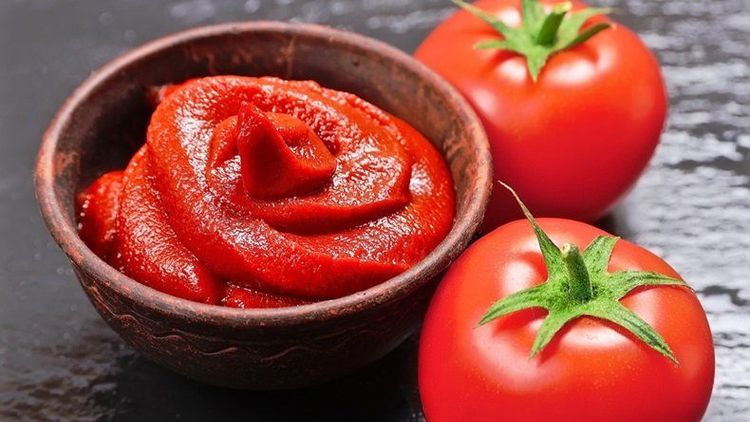
Đắp mặt nạ cà chua cũng đem lại lợi ích cho da dầu
2.10. Jojoba oil
Although the idea of applying oil to the skin may seem counter-intuitive, jojoba oil is a folk remedy that helps treat oily skin, acne and other skin related problems.
Most people think that jojoba oil mimics the sebum on the skin to distract the sebaceous glands making the sebum production less and that will help keep the oil levels in the skin balanced. However, there is currently no scientific research to support this hypothesis.
On the other hand, in 2012 there was a study that showed that applying a mask made of clay and jojoba oil two to three times per week can help heal skin lesions and mild acne.
Use only a very small amount of jojoba oil on your face because using too much can damage and worsen the skin. Before using jojoba oil as an oily skin remedy, you should try massaging a few drops to test the oil's reaction to your skin for an allergic reaction.
3. Measures to prevent oily skin
When oily skin is caused by genetics or hormonal stimulation, it is very difficult to prevent. Practicing proper skin care and avoiding unhealthy foods like fried foods, high sugar foods and processed foods can help improve skin.
Normally, skin with imperfections can use cosmetics to improve, but if not used properly can make the skin condition worse, especially for oily skin. In this case, you should choose products that are hypoallergenic, contain water and are less likely to clog pores.
If there is a need for consultation and examination at the Hospitals of the National Health System, please book an appointment on the website to be served.
Reference source: healthline.com
Please dial HOTLINE for more information or register for an appointment HERE. Download MyVinmec app to make appointments faster and to manage your bookings easily.
See more:How to choose sunscreen for oily skin What does oil blotting paper do? Note when taking care to tighten facial pores




